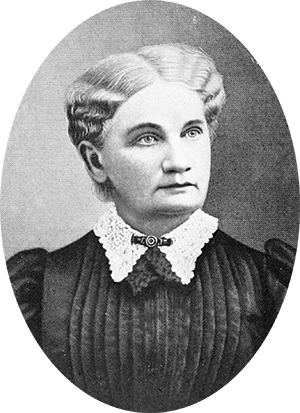Mary Anna Cooke Thompson (1825-1919)
Page Content
 Mary Anna Cooke Thompson, undated. (Courtesy of Oregon Historical Society)
Mary Anna Cooke Thompson, undated. (Courtesy of Oregon Historical Society)

“The question of woman’s suffrage is simply a question of equity, of equality before the law.”
Thompson began practicing medicine in Portland in 1867 and made a name for herself as the city’s first woman physician. Like many others who came after her, Thompson’s political activism stemmed from her experience as a physician. She advocated for women and infants, especially around childbirth, and pushed for sanitation, rest, and recuperation.
Among Oregon’s suffragists, she respected the person, but opposed the tactics of Abigail Scott Duniway. Thompson believed in a connection between woman suffrage and the temperance movement’s urging for the prohibition of alcohol. She and others in the temperance movement believed national prohibition would end the abuse of women and children by their alcoholic husbands and fathers. Duniway opposed this connection, believing it would drive away male voters.
Undeterred, Thompson pushed on, giving speeches and lectures around the state and nation. In 1878, California senator Aaron Sargent introduced the bill which would become the 19th Amendment, and Thompson traveled to Washington D.C. to fight for it. She called on President Hayes to support the bill, and was one of 13 women to address the U.S. Senate regarding woman suffrage. In her speech, she spoke of the moral quality of women, and her sincere belief that voting rights were the cure to political corruption and vice.
Next: Lizzie Weeks >